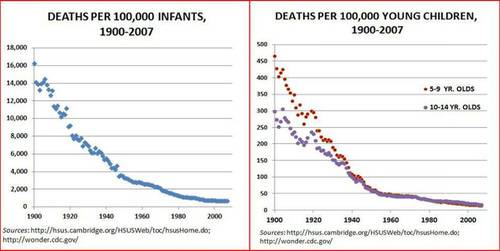As bad ideas go, this is a doozy. Sproutling is a new baby monitor that “alerts parents when babies wake up, or ha[ve] a fever, and uses statistical models to create predictions for when the baby will wake up.”
For anyone who’s ever watched parents slavishly follow their baby’s every whimper from across the house, it’s obvious that this is a terrible idea. It’s also an example of technology that hurts even as it tries to help.
Whatever Did We Do Before Baby Monitors?
As adults, it’s bad enough that we’re constantly checking our Fitbits to see how much we’ve moved during the day (not enough), our heart-rate monitors to check on our exercise effort levels, etc. Why afflict our children with such gadgets?
Not to worry, Wired’s Margaret Rhodes writes:
The first thing to know about Sproutling, the wearable device that straps around a baby’s ankle, is that it’s not for the baby. It’s for the parents. The second is that even though “Fitbit for babies” sounds clever, Sproutling doesn’t track fitness, it tracks sleep.
In other words, the first thing to know is that Sproutling is meant to further torment already frazzled parents. Though Sproutling tells Rhodes that “every touchpoint—both physical and digital—is crafted with overwhelmed parents in mind,” the very idea of Sproutling does the opposite. It overloads already overloaded parents with more information on something that has little impact on their baby’s health.
But What About SIDS?
It’s not clear what baby monitors are meant to accomplish, other than petrify parents. I have four kids of my own, and each of them has somehow reached at least the age of nine (my youngest) without me intruding on their sleep time with eavesdropping devices.
Bizarre, but true!
Now, I understand why anxious parents use baby monitors. They’re trying to guard against SIDS (Sudden Infant Death Syndrome), which takes 0.6 babies per 1,000 births. That makes it the third-most common cause of infant death after birth defects and disorders that accompany premature births.
But guess what? Baby monitors don’t help with this. At all. Linda Rodriguez McRobbie nails this over at Slate:
[W]hat parents want most out of a device like [Sproutling]—protection from SIDS— is exactly what the Food and Drug Administration, the Consumer Product Safety Commission, the American Academy of Pediatrics, the CDC, the National Institutes of Health, Britain’s National Health Service, and even the device manufacturers themselves say it can’t do.
While infant mortality rates have been dropping for the last century, baby monitors have nothing to do with the change:

Infants and older children have all seen significantly lower mortality rates over the past 100+ years, as Claude Fischer writes, largely due to clean water, but also immunization and other health factors.
Baby monitors like Sproutling are not one of those factors.
Turn The Technology Off
As I learned recently on my week without mobile, as hard as it can be to turn off and tune out, it’s also healthy. The same is true for harried parents.
It’s tempting to think that a baby’s every whimper is a clarion call for parental action. It’s not. Babies cry for all sorts of reasons, and some parents use a baby monitor to intercept even the slightest hint of crying. While I don’t want to give parenting advice—actually, I do, but I won’t— don’t think this is good for the baby and it’s certainly not good for parents.
Turn off the Sproutling. Relax. Get some sleep. And, if you really must, track that sleep with your Fitbit.
Lead image courtesy of Sproutling

















